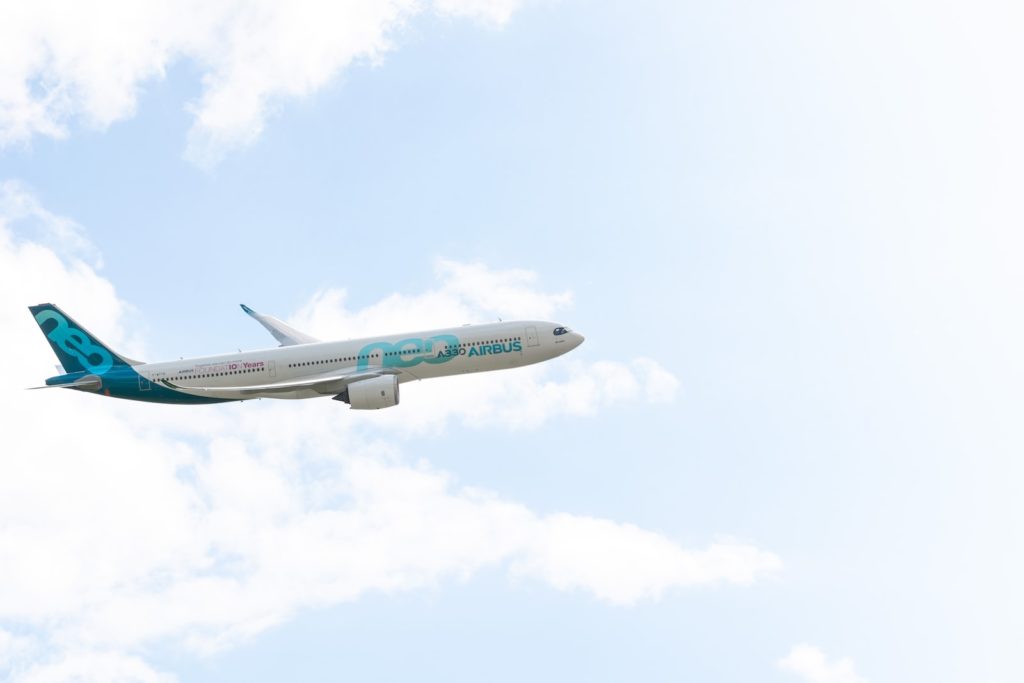Through technological innovation and carbon offsetting mechanisms, the aviation industry is giving itself the means to fully contribute to the goal of zero net emissions by 2050.
In their article of September 19, 2022 entitled “Is 100% green aviation a smoke and mirrors?”, the Tribune de Genève and 24 heures paint a bleak picture of the future of the sector, even arguing for a ban on short-haul flights, or even medium-haul flights (!). This dogmatic discourse must be contradicted.
First of all, AERIA+ would like to point out that contrary to what Mr. Muller states in this article, only 10% of the total CO2 emissions produced in Switzerland are caused by international flights departing from Switzerland according to the FOCA. The figure of 27% given in the article corresponds to the percentage of CO2 emissions resulting from the consumption of fuel taken on board in Switzerland for international flights compared to the total total quantity of fuel sold in Switzerland[1]. According to the FOCA, air transport is responsible for only 2 to 2.5% of anthropogenic CO2 emissions of fossil origin.
Technological innovations, in the forefront of which is the development of biofuels capable of capturing carbon during their production cycle, are promising. Clear targets in this area have been set in the new revision of the CO2 law presented on 16 September 2022.
Erik Simonin, Secretary General of AERIA+, adds: “The airline industry is also committed to carbon offsetting mechanisms: since 2017, for example, Geneva International Airport has been offsetting all of its own CO2 emissions. Many airlines also offer their customers the opportunity to offset the emissions emitted by their flight when purchasing a ticket.”
The solution put forward in the article in question, namely flight bans, is therefore completely irrelevant. The punitive approach was also clearly rejected by the rejection of the CO2 law at the ballot box: the new version presented by the Federal Council abandons any form of additional tax and is based on an incentive logic. Short-haul flights play an important role in international transport, as they enable passengers to reach the main European hubs and offer users – especially companies – fast and efficient transport to an extensive network.
The Association économique romande pour une infrastructure aéroportuaire performante (AERIA+) aims to promote and defend the presence of an efficient airport infrastructure in the interest of the economy of Western Switzerland. The members of AERIA+ are companies, organizations and individuals who benefit from the quality of this airport infrastructure. AERIA+ is committed to ensuring that such misleading statements are systematically corrected in the future.
[1] OFAC, « Les émissions de CO2 du transport aérien – Notions de base et chiffres », 2020
***
More information on AERIA+: www.aeria.ch
Media contact:
Erik Simonin
General Secretary
+41 22 819 91 59
contact@aeria.ch

